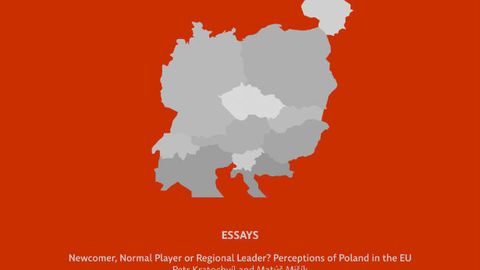Newcomer, Normal Player or Regional Leader?
Petr Kratochvíl and Matúš Mišík are authors of a study that analyses the status of the new EU member states and, in particular, Poland as it is perceived by the representatives of the older EU members. The article was published in the 1/2015 issue of the Politics in Central Europe, the flagship journal of the Central European Political Science Association.
This study analyses the status of the new EU member states and, in particular, Poland as it is perceived by the representatives of the older EU members. On a theoretical level, it argues that the transformation of the newcomers into “normal players” or even “regional leaders” is dependent on five specific conditions that each of these countries must fulfil. These range from (1) simple compliance with the EU’s basic norms and (2) a sufficient level of orientation in EU decision‑making to (3) establishment of the country’s unique policy expertise, (4) the ability to create winning coalitions and finally and above all (5) a willingness to defend the interests of the Union as a whole. On an empirical level, we draw on an extensive set of interviews with diplomats belonging to the permanent representation of the old member states in Brussels. Based on these data, we conclude that (1) Poland has already established itself as a normal EU player fully comparable with the older member states. In terms of the country’s leadership status, (2) Poland has also moved to the position of frontrunner among the new member states. However, the country still fails in at least one criterion: (regional) leadership. This precludes it from becoming a fully respected and leading state in the EU.
Politics in central Europe - The Journal of the Central European Political Science Association, Volume 11, Number 1, June 2015, ISSN 1801-3422
